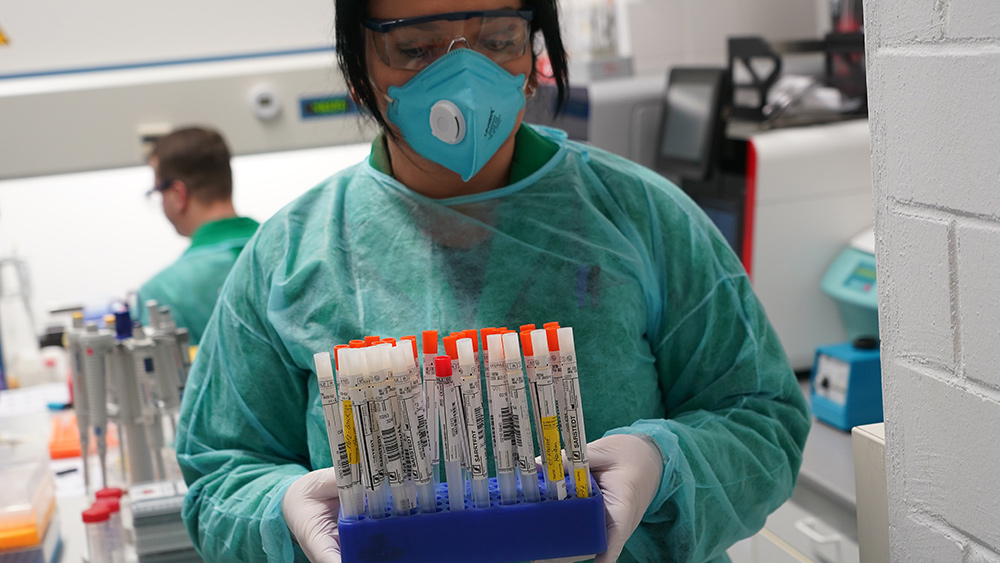
Following a citizen's petition, the Administrative Court of the Circle of Lisbon provided verified COVID-19 data showing that only 152 patients died from the disease from January 2020 to April 2021, not 17,000 as Portuguese authorities claim. The remaining deaths were attributed to various causes.
Nonetheless, some experts remain skeptical about whether even those 152 deaths are actually due to COVID-19. In a recent article on his blog, Andre Dias, a lung disease specialist from the University of Tromso – The Arctic University of Norway, said the ruling's reference to 152 death certificates being issued "under Justice Ministry supervision" is suspicious since all death certificates are issued under the auspices of Portugal's Ministry of Justice.
Therefore, death certificates for the others who supposedly died of COVID-19 could've only been issued by those same auspices. "We live in a fraud of unprecedented dimensions," wrote Dias.
Dias also said a court order had to be issued before the Justice Ministry released the death certificates. As such, all those responsible for handling COVID-19 data, from cases to deaths, should be tried in court "if there is any dignity remaining in the rule of law," added Dias.
Since the pandemic began, Portugal officially recorded around 879,000 cases of COVID-19 and roughly 17,000 deaths, according to data from Johns Hopkins University. More recently, Portuguese authorities have reintroduced draconian safety protocols in the Lisbon District following a surge in infections.
The number of daily and weekly infections in the district began surging again recently primarily because of the highly contagious Delta variant. The variant, also known to infectious disease experts as B.1.617.2, was first identified in India during a wave of infections there in April and May. It's been linked to a resurgence of COVID-19 cases in Nepal, Southeast Asia, the United Kingdom and many other countries in Europe.
COVID-19 fatality is likely overestimated
Portugal may not be the only country overestimating its COVID-19 deaths. Various experts have considered the possibility that the fatality of COVID-19 is overestimated.
In a letter published last March in the British Medical Journal, scientists wrote that the final case fatality rate (CFR) from SARS-CoV-2, the virus that causes COVID-19, will likely be lower than those initially reported. They cited reviews of H1N1 and SARS that showed systematic inflation of early mortality estimates.
They wrote that early estimates of H1N1's mortality were susceptible to uncertainty because of the numerous approaches to testing and biases in reporting, which are difficult to overcome early in a pandemic.
Sir David Spiegelhalter, Winton Professor of the Public Understanding of Risk at the University of Cambridge, told Financial Times that it's very difficult to estimate fatality risk when you have something that varies greatly based on age and a slew of risk factors. "[The] average is pretty pointless."
Early last year, Spiegelhalter worked out that the chance you have of dying from COVID-19 is roughly the same as your risk of dying over the coming 12 months anyway.
In an article published last April, Nina Schwalbe, a public health researcher who has held numerous leadership positions in health and nonprofit organizations, also wrote that the COVID-19 fatality rate seems higher than it really is because health officials are only counting people who are actively infected.
People sick enough to go to the hospital are likely to need critical care, and people in critical condition are likely to die, said Schwalbe. News outlets are reporting only these cases, thereby fostering the idea that COVID-19 is an extremely deadly disease.
Last October, Jonathan Thompson, a Medical Examiner for the State of Iowa, said what truly counts as a death due to COVID-19 is debatable. He said he had a patient with COVID-19 who took his own life because he couldn't take the safety restrictions. Without COVID-19, he would probably still be alive, Thompson said.
Some people could argue that it is a COVID-19-related death. But there is no clear-cut answer.
From a medical examiner's perspective, Thompson added that it's challenging to determine if a patient is dying with COVID-19 or from COVID-19. Not all healthcare workers and experts distinguish between the two, and that could be one of the main causes of soaring numbers of COVID-19-related deaths around the world. (Related: Let's demand a recount… of COVID deaths.)
Thompson said he had a healthy patient in his 30s. The patient didn't have any past medical history. His family also said he was healthy. He tested positive for COVID-19 only eight days before his death. He was found to have lung disease. On the other hand, Thompson also had to do an autopsy on someone with several underlying conditions. Everything looked normal apart from signs of alcohol abuse.
In the latter patient, COVID-19 was just an incidental finding, so he died with COVID-19, not from it.
Follow Pandemic.news for more articles with updates about the Wuhan coronavirus pandemic.
Sources include:
Please contact us for more information.





















